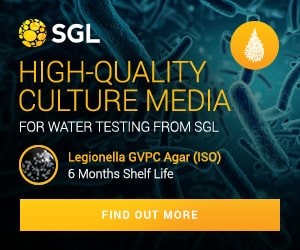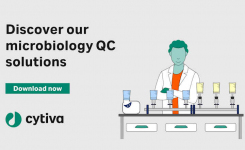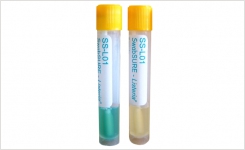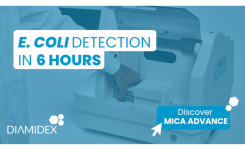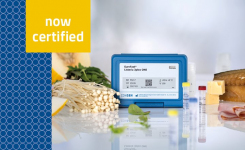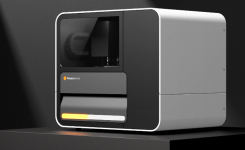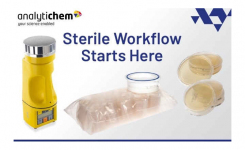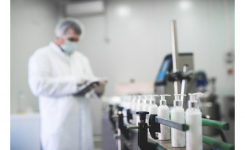Accelr8 4-Hour Test Identifies New Drug-Resistant 'Staph' (hVISA)
go back to news archivesAccelr8 Technology Corporation have announced results from two studies presented at ASM 2011 held in New Orleans. Authors included principal investigators from Denver Health and from the Barnes-Jewish Hospital in St. Louis. One study screened 281 randomly collected clinical specimens and identified 62 for complete detailed analysis of pathogen content. The purpose was to test the accuracy and timing for BACcel™ rapid diagnostic assays intended for use with critically ill patients who acquire serious infections. The BACcel™ system eliminates culturing and analyzes individual live microbial cells directly from a patient specimen. All specimens came from the lower respiratory tract, used to diagnose pneumonia and other severe lung or bronchial infections. Hospital acquired pneumonia is the leading infectious cause of death in ICUs. The study targeted three major pathogenic bacterial species responsible for infections multi-drug resistance (MDR). Together, these three species account for more than half of hospital acquired MDR infections. They include Staphylococcus aureus ('Staph,' including MRSA), Pseudomonas aeruginosa, and Acinetobacter species. The latter two organisms already have high MDR propensity. But investigators are now finding new strains that recently acquired novel, rapidly-spreading 'superbug' KPC genes from entirely unrelated species. The new ASM study reported that the total time from specimen to results only required 4 hours, instead of the typical 3-day time for cultures using the same specimens. Results included organism counts, identification, and expression of two major resistance types for each one, including MRSA. Identification was correct in 182 of 186 tests, and antibiotic resistance classification in 31 of 32 tests. The second study characterized Accelr8´s new test for a hidden type of resistance in 'Staph.' Not only MRSA, but also the more common type of Staph can effectively resist the standard anti-MRSA antibiotic, vancomycin. With a new type of strain known as hVISA, culturing tests indicate susceptibility to vancomycin, but fails to detect subtle indications of low-level resistance that can lead to treatment failure. Microbiologists refer to this type of cryptic behavior as 'heteroresistance.' The investigators screened Staph clinical isolates (laboratory strains) and found 15 hVISA using complex culturing methods. The new BACcel™ assay correctly classified 14 of the 15 as hVISA, and 14 of 14 Staph clinical isolates negative for cryptic resistance. Culturing methods to detect hVISA take 3 days or longer, depending on the methods. The BACcel™ system produced results in 4 hours. The test can be used directly from patient specimens, which would add no more than 1 hour to the total processing time. According to David Howson, Accelr8´s president, 'the specimen study used types of specimen that may be the most difficult specimens for a lab to analyze. They are highly variable, and contain large amounts of sticky and bulky interfering materials. In the past, new diagnostic tests that have worked well with cultured strains often failed when challenged directly with respiratory specimens. We believe this study demonstrates that we´ve overcome this major hurdle. The study also set a new speed record for counting, identifying, and analyzing multiple targets with multiple resistance testsonly four hours after starting with a specimen. If we consider these results and the results presented a week ago at ATS, the combined data show that the BACcel™ rapid diagnostic system is accurate and very fast.' 'The hVISA study also follows a presentation three weeks ago at the European ECCMID meeting that used the BACcel™ hVISA test, along with others. The new results add details that more fully characterize the test performance with this difficult new strain. The ASM study demonstrates the BACcel™ system´s potential for revealing fundamental modes of resistance expression that were neither predicted nor detected using standard culturing methods,' Howson continued. 'These and other tests for multiple organisms and multiple resistance expression modes provide the platform for expanded studies and integration into the next BACcel™ generation. We are now widening our key opinion leader network to prepare for these important studies,' Howson concluded. eceAccelr8´s Web site at www.accelr8.com/pgen.php?pg=resources_publications. |
NOTE: This item is from our 'historic' database and
may contain information which is not up to date.
Source : Accelr8 Technology Corporation View archived contact details
Posted on May 24, 2011


